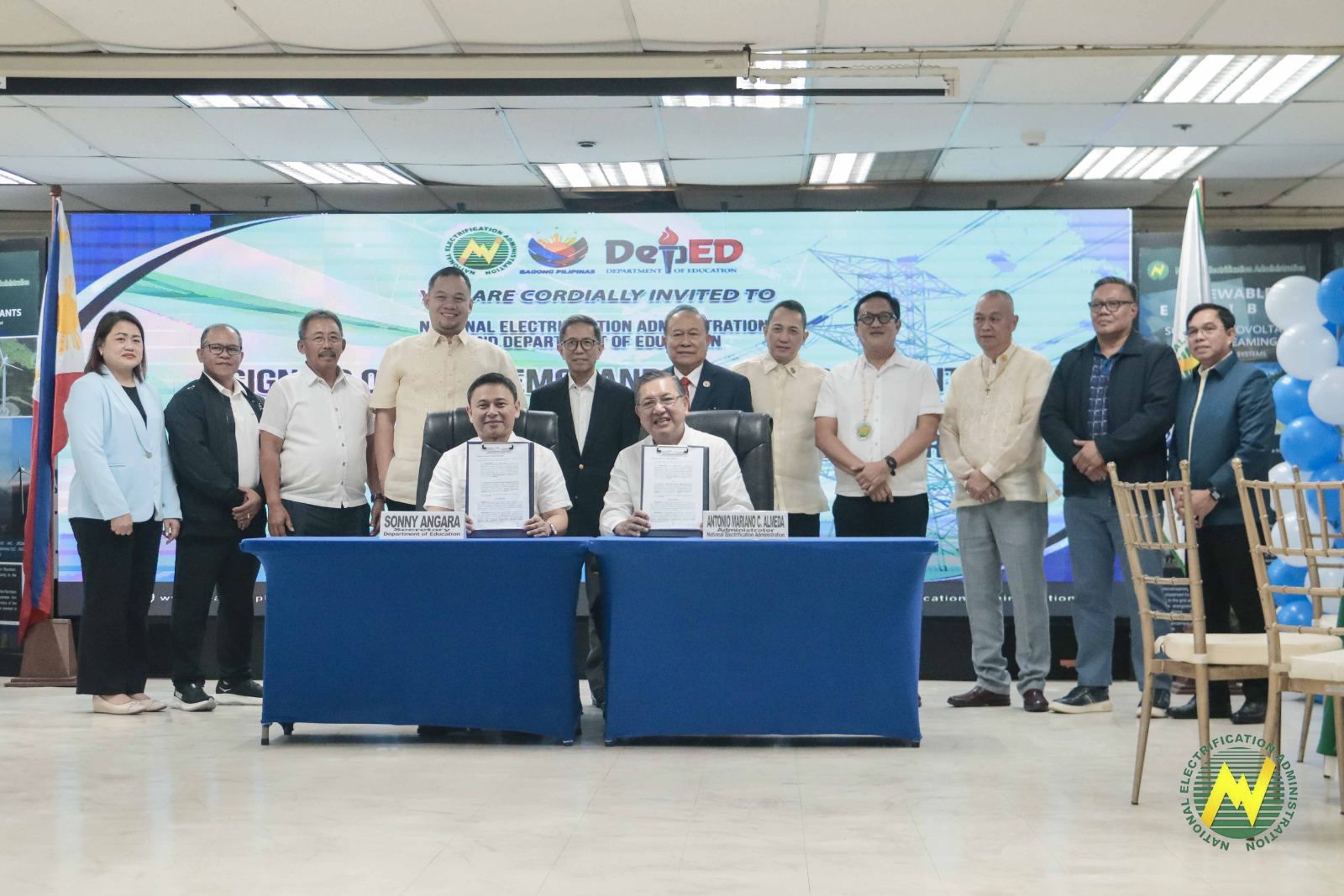NEA, DepEd partner to power remote schools with solar energy
- February 5, 2025
- 0

The National Electrification Administration (NEA) has entered into a partnership with the Department of Education (DepEd) to bring solar power to remote schools, aiming to improve access to electricity and enhance learning environments in underserved areas.
The memorandum of agreement (MOA
“The moment reflects a shared vision and the unified effort to address one of the most vital aspects of development, ensuring that every child, regardless of how remote their location may be, has access to the transf
The partnership is expected to boost educational opportunities for students by providing a stable power source, enabling the use of digital learning tools and more conducive study environments.
Additionally, the education department is tasked with providing logistical and financial support to facilitate the installation of solar photovoltaic (PV) systems in these far-flung schools.
Meanwhile, NEA, in collaboration with its partner electric cooperatives (ECs), will handle the technical aspects of setting up the solar panels and ensure proper system monitoring and evaluation.
The agency has mandated ECs not to charge any fees for the maintenance of the solar systems, underscoring this initiative as part of their Corporate Social Responsibility efforts.
Energy Secretary Raphael P.M. Lotilla, who also attended the event, highlighted the ongoing challenge of electrifying around 1,500 public schools nationwide, many of which are situated in remote areas like BARMM, North Cotabato, Palawan, Sulu, Zamboanga del Sur, and Negros Oriental.
He added that the new agreement represents a crucial step toward realizing the government’s vision of fully supporting every learner’s potential through better access to basic utilities.
Meanwhile, the energy secretary noted that the department plans to review the country’s total electrification program as it still needs around Php 85 to 100 billion to meet the 2028 household electrification target, while the current annual budget allocation has only averaged between Php 2 to 3 billion.
Lotilla pointed out that this budget would not only answer household electrification but would also improve backbone linings, especially in off-grid areas.
Stay informed on how public-private partnerships are shaping the future of education and energy access in rural communities by engaging in powerful conversations at Power Philippines.